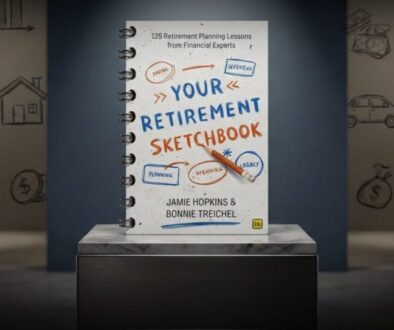For Gen Z, optimism is key to retirement readiness, report finds

Optimism might be the real key to retirement readiness, especially for Generation Z.
That was one of the takeaways from a new study by Nationwide Retirement Institute and The American College, which said optimists are 237% more likely than pessimists to be financially prepared to live to 100. Optimists also are 75% more likely to save at least 10% of their income for retirement.
The most optimistic generation of future retirees is Gen Z, the age group where the gap between aspiration and anxiety is the widest. Although they are just starting out in the working world, Gen Z is the most eager generation to live longer and better:
- 37% of Gen Z want to live to 100, more than any other generation.
- 63% would pursue their passions, 57% would focus more on relationships, and 29% would retire earlier if they knew they’d live that long.
- Yet 81% fear loneliness and 77% worry about finding fulfillment later in life.
Mindset is crucial toward planning
Why some people believe that they will live longer in retirement may be related to their mindset about their future well-being, the report said. When respondents were asked, “When you imagine your well-being over the next 15 years, how do you feel?” about a quarter of respondents were highly optimistic and 11% were pessimistic.
Respondents were also asked “when planning for funding expenses in retirement, to what age do you feel comfortable as your maximum planning horizon?” About one in three (33.9%) indicated that they would only plan on spending up to the age of 75 at the most, 16.7% said they’d plan up to age 80, 14% would plan to age 85, 15.1% to age 90, and 9.3% to age 95, and 10.9% would plan to age 100 or older

A positive mindset is strongly related to expected planning horizon, the report revealed. Respondents who held a more positive mindset about their well-being over the next 15 years were far more likely to believe that they need to plan for expenses to at least age 95 in retirement. Although only 7% of those who were pessimistic about their well-being said they would plan to fund their expenses to age 95, more than one in three of those who were highly optimistic about their well-being planned to fund expenses to at least age 95.
Retirement preparation appears to be motivated by beliefs about longevity and a more positive mindset about the future, according to the report. This may be because those who are more optimistic about their future health believe that they need to plan for a longer period of lifestyle spending in retirement.
The report also found an important aspect of longevity awareness is the motivation to prepare for a longer retirement. A more positive mindset appears to motivate people to become better financially prepared.
Longevity is not the only motivator of retirement preparedness. Those who anticipate a longer active life in retirement, also known as healthspan, save a consistently higher percentage of their income for retirement. Awareness of longer and more active retirements can drive savings behavior among workers preparing to fund their own future lifestyle.
Although the challenges of planning for longer lifespans are apparent, the study also revealed an upside: if Americans knew they would live longer, many would take meaningful action to improve their physical and financial well-being:
- 58% said they would adopt a healthier lifestyle.
- 67% would pay closer attention to their finances and increase their savings.
- 37% said they would delay retirement.
- 63% said they would take on less debt.
Revelations on Gen Z and retirement planning
Kristi Rodriguez, head of the Nationwide Retirement Institute, told InsuranceNewsNet that the report revealed some insights about Gen Zers and retirement planning.
“Although we see a number of Gen Zers know that they’re going to live longer and they’re probably going to retire a lot later, they’re optimistic about retirement,” she said. “We see that by the way they approach their lives from that standpoint of longevity and planning as well as the things they’re doing in the immediate future. It’s really about a mindset shift, which we find critically important. It goes hand in hand with getting the knowledge you need and then having the mindset that you can do it.”
Gen Zers saw their parents negotiate their way through some tough economic times, including the great recession, and that could have fueled their optimism toward retirement, Rodriguez said.
“They don’t fear some of the things that we fear and I think that’s great, as long as we can harness that optimism and give them the tools and knowledge they need to plan.”
Gen Z is a crucial age group for advisors to focus on, she said.
As we move into the year 2054, we’ll see a crucial demographic shift, as more people will be 100 and over than ever before. So for those younger adults, it’s important that advisors garner empathy when working with Gen Z. Their needs right now are different from those of their parents, but advisors must make sure they bring younger adults into the conversation. Meet them where they are, and give them the knowledge that they need so they understand what they must to now as well as how they can plan for a meaningful future.”
© Entire contents copyright 2025 by InsuranceNewsNet.com Inc. All rights reserved. No part of this article may be reprinted without the expressed written consent from InsuranceNewsNet.com.
The post For Gen Z, optimism is key to retirement readiness, report finds appeared first on Insurance News | InsuranceNewsNet.





